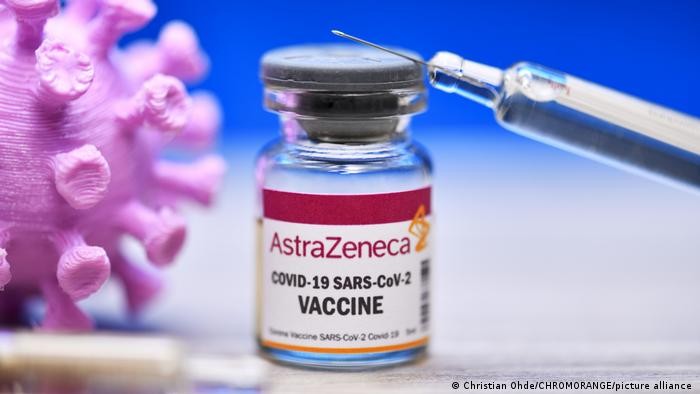NAIROBI (Reuters) – The African Union’s disease control body said on Thursday it had dropped plans to secure AstraZeneca COVID-19 vaccines for its members from the Serum Institute of India, the world’s biggest vaccine supplier, amid global shortfalls of the shot.
AstraZeneca’s $3 shot is by far the cheapest coronavirus vaccine launched so far, and the easiest to store and transport, making it well suited to developing countries.
On Wednesday, European and British medicine regulators said they had found possible links between the vaccine and extremely rare cases of brain blood clots, while emphatically reaffirming its importance in mass vaccination against COVID-19.
John Nkengasong, head of the Africa Centres for Disease Control and Prevention (Africa CDC), said the AU’s decision had nothing to do with those findings, and reiterated his advice that the benefits of the vaccine outweighed the risks.
He said the main reason was to avoid duplicating COVAX’s efforts by the World Health Organization-backed COVAX facility, which will continue to supply AstraZeneca to Africa.
He said the AU was focusing on the Johnson & Johnson vaccine, citing a deal announced last week to supply Africa with up to 400 million doses.
COVAX aims to deliver 600 million shots – most of them from AstraZeneca – to some 40 African countries this year, enough to vaccinate 20% of their populations.
Africa trails most other regions in COVID-19 vaccinations; fewer than 13 million doses have been administered on a continent of 1.3 billion people, according to the Africa CDC.
‘NOT COMPETING’
The AU had wanted to secure up to 500 million additional AstraZeneca shots for its 55 member states, at $3 per shot.
However, last month India suspended its exports to meet rising domestic demand.
Nkengasong said the subsequent delays were complicating vaccination across Africa, noting that health systems had to know that second doses would be available in time for those who had received a first dose.
Matshidiso Moeti, who heads the WHO’s Africa office, confirmed the two organisations wanted to ensure they were “not competing and stepping over each other looking for the same vaccines”.
“I am very much assured that it is not to do with doubts about the safety and other considerations on the AstraZeneca vaccines. It’s simply to recognise that there are challenges with the volumes that are available,” she told a separate news briefing.
The single-shot J&J doses secured last week will not arrive until the third quarter, and Nkengasong said Africa would find it hard to bridge the gap in the meantime.
South Africa has cancelled orders of the AstraZeneca vaccine after finding it gave only minimal protection against mild-to-moderate infection caused by the country’s dominant, highly infectious variant.
Russia and China are also offering vaccines, but there are questions about their cost and availability in large volumes.
The virus is confirmed to have killed 114,000 people across Africa, and infected 4.33 million.
If you would like your article/opinion to be published on Uganda’s most authoritative news platform, send your submission on: [email protected]. You can also follow DailyExpress on WhatsApp and on Twitter (X) for realtime updates.



